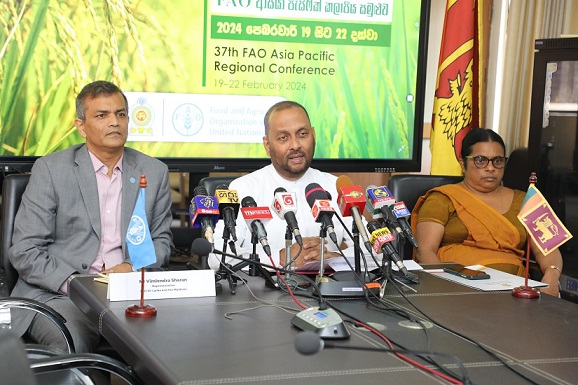Sri Lanka"s IT Landscape Transforms
Sri Lanka is rapidly emerging as a central hub for information technology and outsourcing, positioning itself on the global map. As reported by the U.S. Department of Commerce, the Sri Lankan government is actively seeking to develop this sector, attracting foreign direct investment (FDI) in telecommunications, call centers, and IT services. This shift reflects a broader trend of globalization, where developing nations are not just participants but key players in the tech arena.
Investment Opportunities Soar
According to the U.S. State Department, recent years have seen significant investments flowing into tourism, real estate, and crucially, telecommunications. The Sri Lankan government aims to channel more funds into information technology services and light manufacturing, indicating a strategic pivot towards a knowledge-based economy. This ambition aligns with global trends where digital economies are reshaping job markets and wealth distribution.

Ministry of Agriculture - Sri Lanka - Sri Lanka to Host 37th ...
Cybersecurity Risks Escalate
However, this promising landscape is not without its challenges. As reported by recent research, the surge in digital device usage has been accompanied by a rise in cybersecurity threats. Sri Lanka"s cybersecurity framework is underdeveloped, leaving both businesses and consumers vulnerable to data breaches and cyberattacks. The Sri Lanka Computer Emergency Readiness Team has identified a sharp increase in incidents, underscoring the urgent need for robust cybersecurity measures.
Digital Rights at Risk
As the IT sector flourishes, so does the risk to digital rights. The government"s push for technological advancement must be paralleled by strong protections for privacy and data security. According to research on digital practices, the lack of comprehensive privacy laws in Sri Lanka poses a significant risk to personal data. Without proactive policy measures, the promise of economic growth could come at the cost of individual rights.

Minister of Science, Technology and Research assumes duties ...
The Global Context Matters
The international community is watching closely as Sri Lanka navigates this transformative period. The global IT market is competitive and fast-paced, and Sri Lanka"s ability to adapt will determine its success. The country must not only lure investments but also establish a regulatory environment that prioritizes transparency and accountability. The lessons learned from other developing nations highlight the necessity of embedding digital rights into the core of tech policy.

![[Video] Anti-ICE Protester Pepper Sprayed as CBP Agents Disperse Crowd in Minneapolis](/_next/image?url=%2Fapi%2Fimage%2Fthumbnails%2Fthumbnail-1768260677127-y71sb7-thumbnail.jpg&w=3840&q=75)

![[Video] Several injured as U-Haul truck drives through Iranian protestors in Los Angeles](/_next/image?url=%2Fapi%2Fimage%2Fthumbnails%2Fthumbnail-1768176682028-q95y6j-thumbnail.jpg&w=3840&q=75)
![[Video] Scuffle breaks out between Trump supporters and Anti-ICE protesters in Times Square](/_next/image?url=%2Fapi%2Fimage%2Fthumbnails%2Fthumbnail-1768165958203-hgcgb-thumbnail.jpg&w=3840&q=75)


![[Video] Gunfire between Iraqi security forces and Sadr militias in Baghdad](/_next/image?url=%2Fapi%2Fimage%2Fthumbnails%2Fthumbnail-1768343508874-4redb-thumbnail.jpg&w=3840&q=75)
